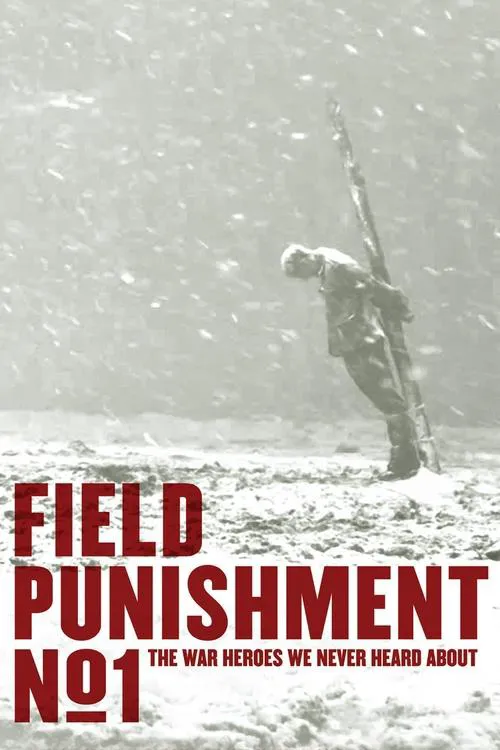Field Punishment No.1

Plot
In 1916, the world is at war, with nations clashing in a seemingly endless conflict. As the bloodshed continues to mount, nations resort to innovative and sometimes brutal methods to achieve their goals. In New Zealand, a secret government endeavor takes shape, aimed at silencing outspoken conscientious objectors who refuse to fight on moral grounds. At the forefront of this endeavor are 14 men, each with their own personal convictions and reasons for objecting to war. They come from different walks of life, but all share a deep-seated disapproval of the war and its objectives. Conscientious objectors, like these men, face ostracism, ridicule, and even imprisonment in their homeland. Realizing their situation might become insurmountable, the New Zealand Government concocts a plan to send them to the Western Front. Their destination is France, a war-torn land ravaged by years of bloodshed and destruction. Upon arrival, the objectors soon discover that they are not only being transported to the front lines but are also subject to harsh treatment and punishment. The authorities hope to break these men's spirits and reeducate them to conform to the government's ideals of patriotism and duty. They are met with brutal punishments, including hard labor, solitary confinement, and even physical beatings. The men are forced to endure grueling work, exposed to the elements and harsh conditions, all under the watchful eye of their tormentors. One of the objectors is Thomas Ainge, a young farmer who believes in living a simple life. He is accompanied by fellow objectors, like Arthur Cook and George Mainwaring, who share his pacifist views. Together, they face unspeakable hardships and suffering at the hands of their captors. The treatment meted out to them is inhumane and dehumanizing, designed to crush their resolve and make them conform to the expectations of those in power. However, the objectors' resolve only seems to become stronger in the face of such persecution. As they work tirelessly in the harsh conditions, they hold onto their convictions and support one another, refusing to give in to the will of their oppressors. They maintain an inner strength, which serves them as a bulwark against the hardships they face. Meanwhile, back in New Zealand, pressure mounts on the government for its decision to send conscientious objectors to the front. The public remains largely unaware of the inhumane treatment being meted out to these men, who are seen as traitors to their country. The government struggles to keep the program under wraps, fearful of international repercussions and the potential harm to their reputation. Throughout their story, the objectors form bonds with one another and find support in their shared convictions. This camaraderie provides them with the strength to persevere through the unimaginable hardships they face every day. Even in the face of physical punishment and psychological abuse, they stay united and maintain their commitment to their principles. In a shocking twist, one of the objectors is captured by German forces after they are ambushed and separated from their unit. This act provides a turning point, highlighting the brutality and futility of the New Zealand Government's policy. Back in New Zealand, protests grow louder, and public opinion begins to shift as news of the atrocities committed against the objectors slowly emerges. Ultimately, the story of the conscientious objectors serves as a poignant reminder of the devastating consequences of conflict and the importance of empathy and compassion. As the war drags on, and more lives are lost, the value of human life becomes stark and clear. The film 'Field Punishment No.1' humanizes a group of people who have long been misunderstood and demonized, painting a stark picture of a dark chapter in history. Through the eyes of the objectors, it highlights the need for tolerance, understanding, and peace. In doing so, it inspires viewers to question the true cost of war and the value of human freedom.
Reviews
Recommendations




